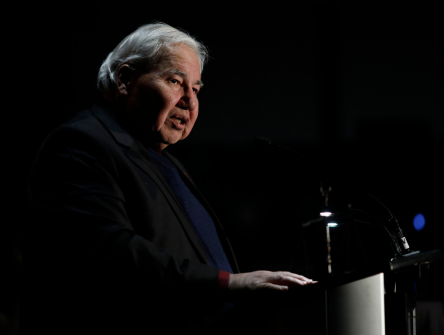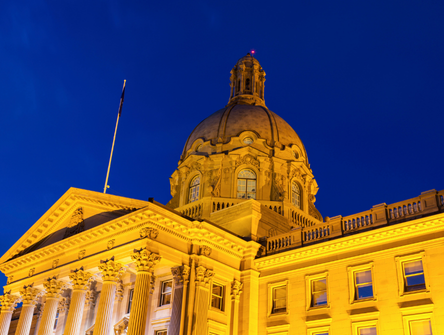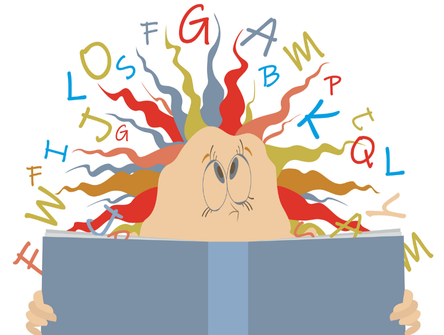The diplomat
Throughout a distinguished career, Yves Fortier has emphasized honesty, transparency — and the personal touch.

He doesn’t just meet you in his office. He makes sure you have a hot cup of tea when you arrive. He doesn’t just say goodbye. He helps you with your coat and sees you to the door, chatting along the way. He has an incredibly heavy schedule, but still manages to give the impression he has all the time in the world for you.
Here’s the thing about Yves Fortier: He’s a lawyer, heart and soul, but above all he’s a diplomat. Not that he has to be. Many people with careers as outstanding as his would say they could spare no more than 20 minutes, citing their busy schedule. And even then they might barely pay attention to you. But Yves Fortier, just back from London and New York, and leaving again in few days to join his family, will give you several hours of his time without batting an eye, this, in spite of the huge files that have piled up awaiting his attention, or the phone that doesn’t stop ringing all evening.
He’s naturally humble. It’s in his blood. Never mind that his name is synonymous with international arbitration. If you use words like “outstanding” or “accomplishment” to describe his career path, he’ll roll his eyes. At the very least, he’ll list the names of the people who worked with him on one case or another and tell you how helpful they were, how he couldn’t have done it without them. At the mention that he once turned down a seat on the Supreme Court, he’ll tell you that he would have preferred that that story had never gotten out. “It’s now public knowledge, but I didn’t like it to be discussed,” he says.
And it may be known as Norton Rose Fulbright today, but the name Ogilvy Renault is still stamped on his heart. His office, located in Place Ville Marie, in downtown Montreal, is still on the same floor as Norton Rose’s reception area.
“You’re going to talk to Pierre Bienvenu? Well, his office is just over there!” says Fortier of his friend, a senior partner at his former firm. Fortier retains many good memories from his 50-year career with Ogilvy Renault, where he was once chairman. There’s still a strong sense of camaraderie with his former colleagues — Pierre Bienvenu, Stephen Drymer, and so many others who first knew him as their mentor. They now know him as their friend.
He left the firm two years ago. After Norton Rose absorbed Ogilvy Renault, the international arbitrator found himself with too many potential conflicts of interest working in a global law firm. Having to choose between the two, Fortier opted for his career in arbitration. “For the remaining years of my career, I chose to follow my passion. But it was like going through a divorce. It wasn’t easy. For me, it will always be Ogilvy Renault,” he says with emotion.
And yet there is no bitterness. When asked to describe him, friends and colleagues always mention his character, his politeness, and the fact that he makes himself available for others. “The man’s a prince,” is how Drymer puts it. “Always has been, ever since I first met him.” He also remembers the early days of what he calls “professional love at first sight,” going back to the days when he was a junior lawyer at Ogilvy Renault, and he was called in to the chairman’s office. “I kept asking myself what I might have done,” he confides. “But in the end it seems that Yves just needed a young member of the litigation team for a case. In him, I discovered a man of exceptional humanity. How many times, in our line of work, do you hear a senior partner say thank you to a junior? Ours is a fierce and competitive environment, and Yves has always acted like a perfect gentleman with the people he works with.”
Barry Leon, who knows him primarily from working on Toronto Arbitration Place cases, talks about Fortier’s contribution making arbitration a credible vehicle for alternative dispute resolution. “He has founded arbitration centres, has helped put in place the proceedings, trained arbitrators and given credibility to this dispute resolution mechanism,” says Leon, who heads the international arbitration group at Perley-Robertson, Hill & McDougall. “But he also leaves his mark through the little things, by simply helping people.” He always makes himself available no matter how busy his schedule is: “As far as I know, nobody has ever yet called him the Energizer Arbitrator, but that’s exactly what he is.”
“He knows how to delegate, how to motivate the people he works with, and how to make them feel valued,” says Pierre Bienvenu, now global co-head of international arbitration at Norton Rose. “He will entrust a lot of responsibility to the more junior staff, who ultimately feel that they’re no longer just working for him, but with him.”
“He’s at the top of what anyone could conceive of as a career in international arbitration,” Bienvenu adds. “He’s one of four or five people who are most in demand. He incarnates the versatility that Canadian lawyers — especially those from Quebec — can bring to the international arena, given their background in civil law and common law. And that’s not counting all the success he had on the boards of major corporations.”
From litigation lawyer to diplomat
Fortier, who is also a past-president of the Canadian Bar Association, saw his career take a major turn in 1988, when his friend, then-prime minister Brian Mulroney, entrusted him with a new task: representing Canada at the United Nations, where Canada would be taking a seat on the Security Council.
“I was at the right place at the right time,” says Fortier. “During my term in New York, the Berlin Wall came down, the Soviet Union broke up, we went through the first Gulf War, Nelson Mandela was released — how wonderful it was to meet him! Let’s say that all this gave me exposure to some outstanding matters.”
Fortier used his instincts as a litigation lawyer to adapt to this changing environment. “I came to the culture and world of diplomacy as an outsider. But I must say I had a lot of help,” he adds. “And because I was close to Brian, I had a direct line to the prime minister’s office. That helped, invariably.”
What are his proudest achievements from that time? “I had talks with Mulroney that eventually led to a relationship between Canada and the Palestine Liberation Organization. And aside from that, Brian was co-chair of the 1990 World Summit for Children. That was a big moment for us.”
“My two years on the Security Council were excellent years for the United Nations: the end of the Cold War, the first Gulf War,” he muses. “Just two years earlier, I had been practising law in Place Ville Marie! And suddenly I was in the big leagues, and I mean the major leagues. I got the bug. I lived and breathed the international sphere for four years, and I enjoyed it.”
A turning point for arbitration
So it was out of the question for Fortier to go back to being a litigation lawyer when he returned home from New York in 1992. He wasn’t interested in sitting on the bench. “It’s just not in my DNA,” he explains. “I admire judges, it’s the ultimate achievement for a lawyer to become a judge. But to shut myself in a room with eight other men and women, and no longer having personal relationships with lawyers: that wasn’t for me.”
Which is why, when he went back to private practice, he placed a call to Ogilvy Renault’s London-based partner, Andrew Fleming, to ask him to put him in touch with the lawyers in charge of arbitration in most of the major London firms, which were then expanding in that sector. Introductions were made.
“You need to understand that at that time, the arbitration treaty that had become the key reference in the field had been drafted by two lawyers working at Freshfields, Allan Redfern and Martin Hunter. And one day, when I’d been invited to a meeting, I entered a small conference room, and there were Redfern and Hunter! It seems we got along well, because instead of spending just half an hour together, we spent a whole hour.”
That same evening, Andrew Fleming phoned Fortier to let him know that he had made an impression on Redfern, who represented interests responsible for the construction of the tunnel under the English Channel. They were facing a billion-dollar claim from the contractors. “It was going into arbitration, and they were looking for a chair,” Fortier recalls. “They asked me if I would be interested in having my name on the shortlist. The next day, I received a call saying they wanted me.”
That first case would establish Fortier’s reputation in that field and he has never looked back.
“Arbitration offers all the perks of the bench, with none of the burdens. I switch from one case to another. I have new people around me. I get variety,” he explains. Fortier travels regularly to London and New York to hear disputes. He also gets called to Asia from time to time. “I won’t say that I’m too busy, otherwise no one would call me anymore. But let’s say I have a nice schedule; I’m happy in my milieu.”
Does he find time to relax? “A sound mind in a sound body,” is his answer. “I play tennis as often as I can. In winter, I ski, especially cross-country. Balance is important.”
And about staying on in this field? “Once you find yourself inside the international arbitration tent, you stay there,” he says. “Unless you make a big blunder.”
“Some people complain that it’s like the Mafia, controlled by just a few of us. That is less and less true. There are more and more women today — thank goodness. There used to be a lot of grey hair, but we’re seeing more and more new faces.”
The added advantage
People who know Fortier ascribe a saying to him, which he inherited from his father: “It has the added advantage of being the truth.”
And Fortier has distinguished himself over his career by his emphasis on transparency and honesty. To illustrate this, those who know him well often point to an individual opinion he wrote in the International Court of Justice case Maritime Delimitation and Territorial Questions Between Qatar and Bahrain, in which he acted as an ad hoc judge. In it he denounced the use of documents by one of the parties — Qatar — which, it turned out, had been falsified. He also reproached the Court for not having “gone farther” than offering a narrative of the impugned facts, and of Qatar’s action that “polluted and infected” the dispute. “Since the Court chose not to address this issue, I have decided that it was my duty to do so,” he insisted in his decision.
These days, in-between flights or tennis matches, Fortier spends as much time as possible with his children and grandchildren. The many photos that decorate his office are a testament to the importance of family. When it’s possible, his wife joins him if he has to travel. “It’s important to share special times together.” And as if business trips weren’t enough, he and his wife have also discovered the world of cruises, he confides. The Black Sea, the Mediterranean, the Baltic Sea, and Alaska are are all destinations that the couple has cruised to. He plans to visit Argentina next.
There is something fitting about the image of Fortier cruising around the world, lifted by the tides while adapting to new climates, with a compass well in hand so as not to lose the heading. A life on the high seas, open to the wide world.
Yves Fortier on…
… The UN
I learned to be patient! You know, every country has the right to speak, and each one has the same amount of time. So when you go around the table, sometimes you get the feeling it’s taking a long time, and that the conclusion could have been reached much sooner. But, that said, it’s an important process, and I was privileged to sit in the UN during such a turbulent period.
… Arbitration
The biggest challenge now is the danger that some decisions may entail a long wait. In some circles, there are also arbitrators who have a tendency to charge extremely high hourly rates. Some lawyers too. This is a threat to arbitration’s reputation as an affordable and speedy mechanism.
… Montreal as an arbitration centre
Unlike Toronto, which for several years now has seen growth in domestic arbitration, Montreal has not managed to make its mark. In London, Paris, The Hague, Singapore, Hong Kong, you can see that it’s developing. We’re also seeing more and more arbitration in South America. Maybe there weren’t enough of us in the crucial years of the 1990s. It’s unfortunate because, in my opinion, we had it all: two languages, two legal cultures, and proximity to the major centres of world trade.
… Becoming an arbitrator
You learn it on the job. I don’t think anyone is born a judge or arbitrator. It develops over time. In the end, it’s a blend of instinct, judgment, knowledge, patience, a multitude of factors that fit into the picture. But the worst failing a person who is in a position to make a ruling can have is being unable to decide.


